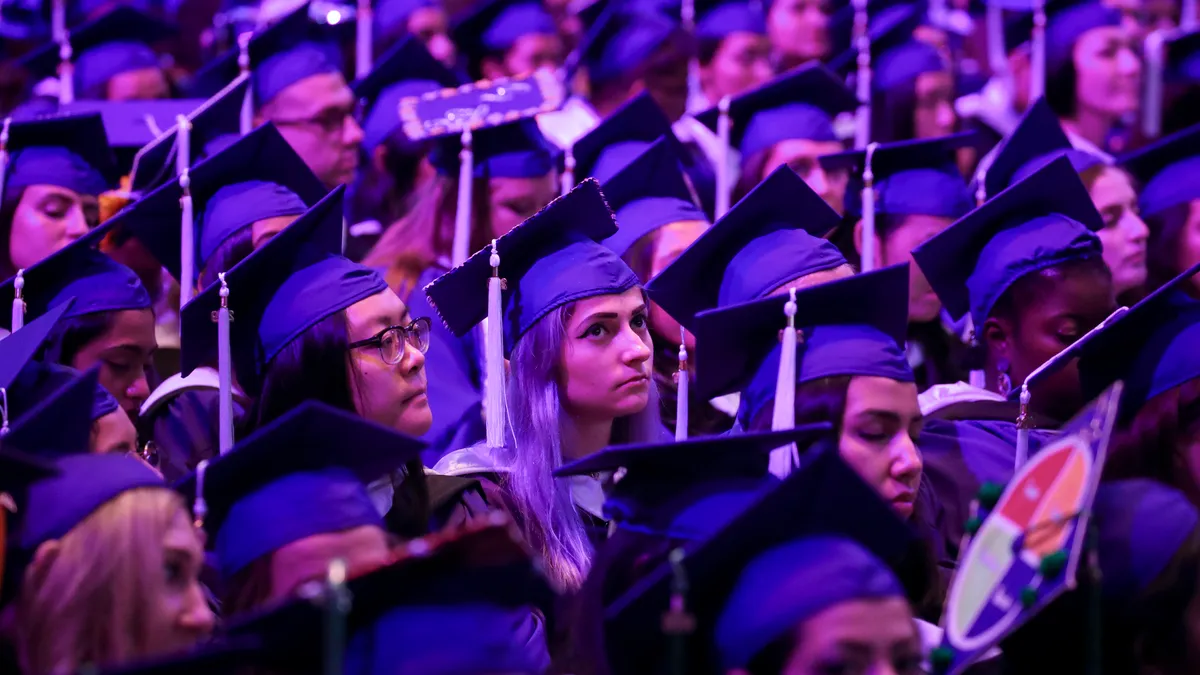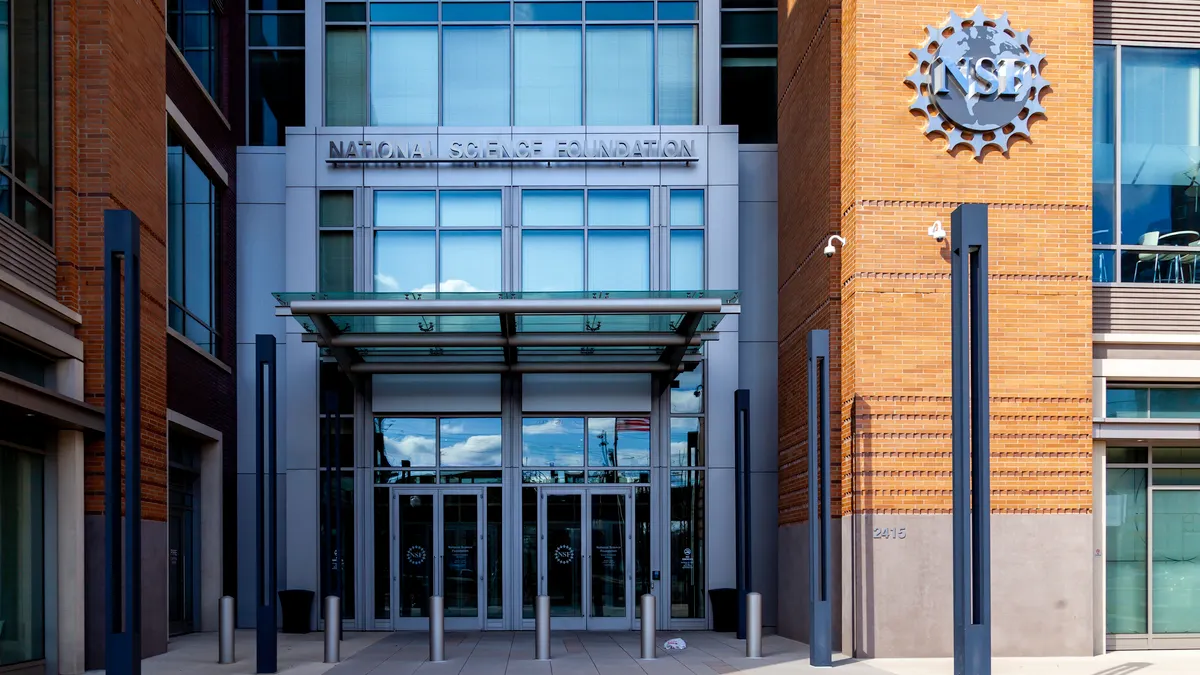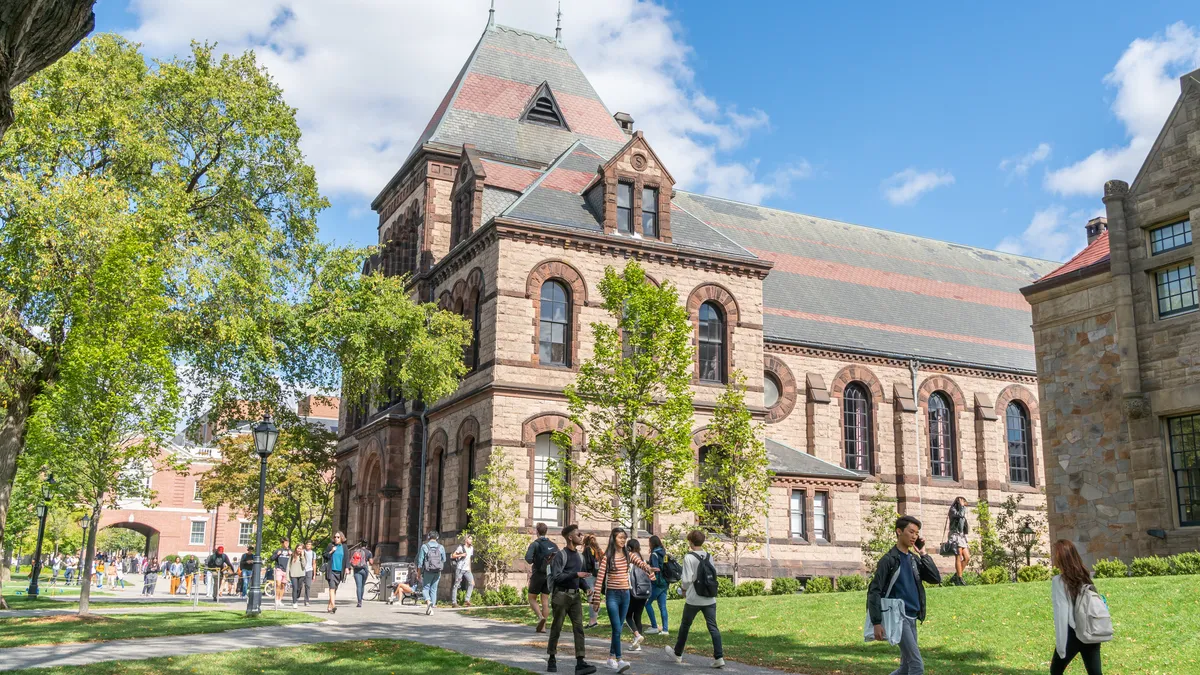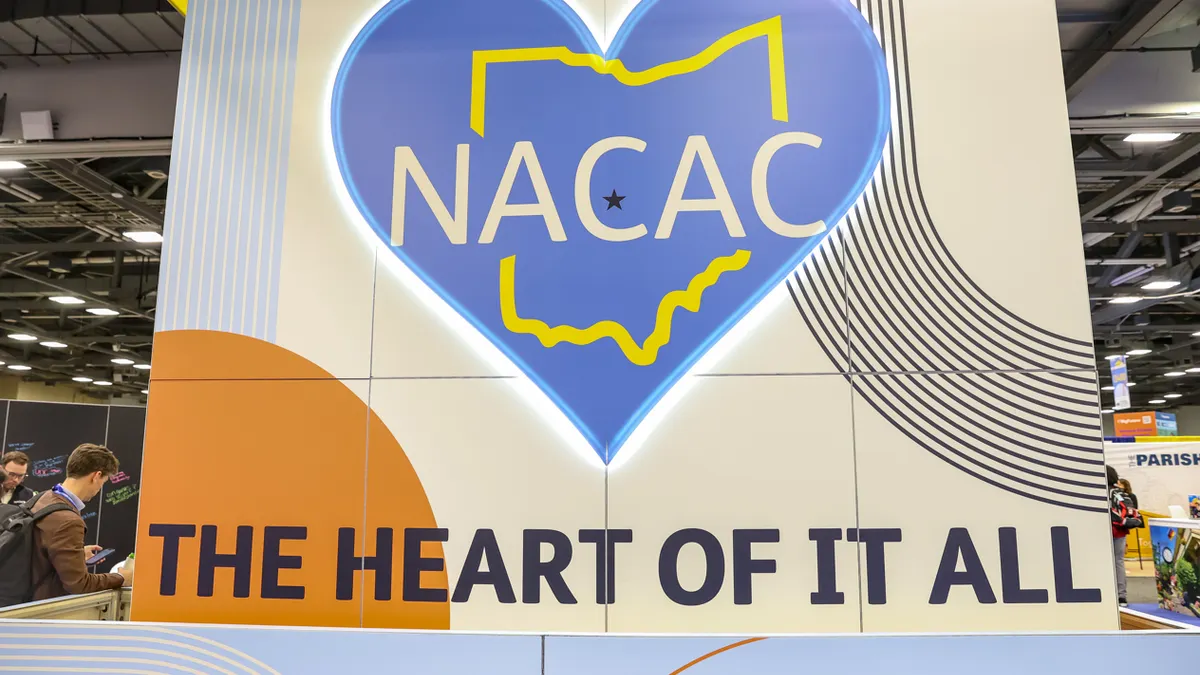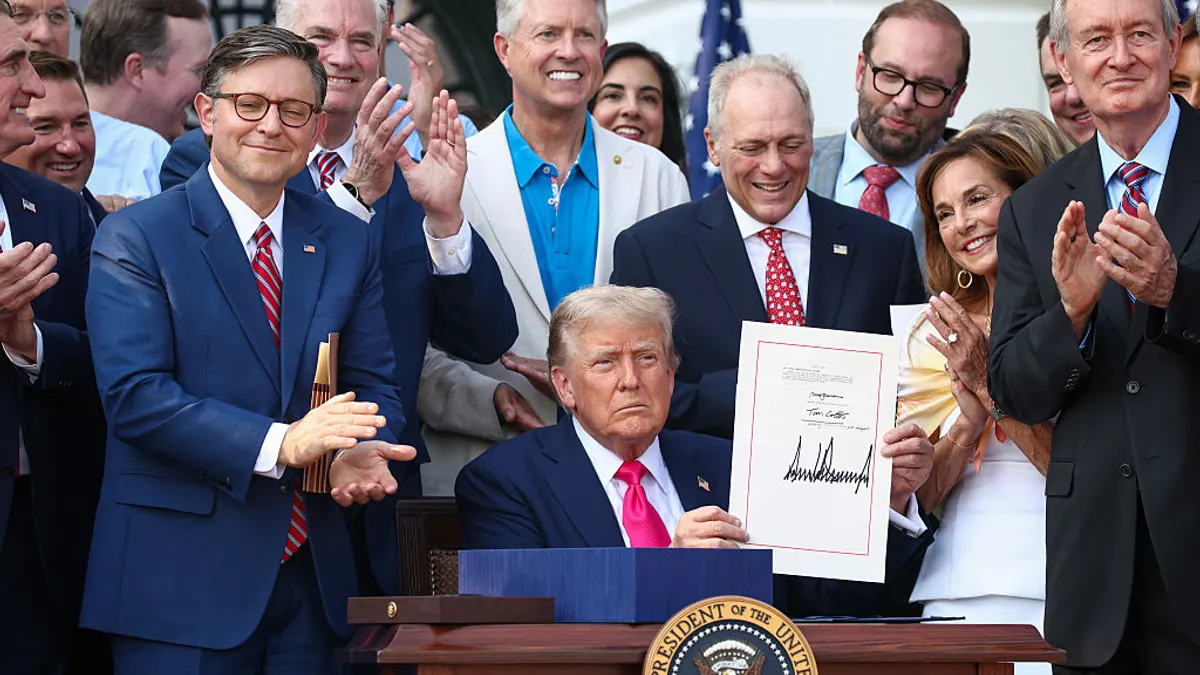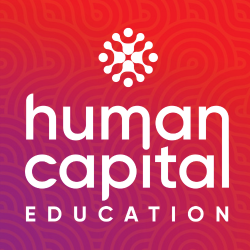As the American public has lost confidence in higher education over the past few years, policymakers have begun talking more about return on investment. In the simplest terms, they say that graduates who invest time and money pursuing a college education should see an earnings bump from their degrees.
In a recent report from the Strada Institute for the Future of Work and the Burning Glass Institute, researchers have attempted to push the conversation beyond earnings by looking at the kinds of jobs graduates are getting.
They issued a big finding: 52% of graduates with only a bachelor's degree end up underemployed a year after getting their diploma — that is, they work in jobs that don’t typically require a college degree. Ten years on, that number only drops to 45%.
Other researchers have said that number seems higher than they would expect. However, focusing on what type of jobs students expect to have — and not just how much they will earn — may offer colleges new insight into how to meet those expectations.
For instance, researchers recommend that policymakers and colleges invest in quality career counseling and increase the transparency around which occupations students end up in.
In addition, they say, colleges should encourage students to have a paid internships, which the report says can significantly lessen their chances of underemployment. Colleges should also do their best to open fields of study that lead to college-level jobs, such as by removing restrictions like minimum grade requirements and “weed-out” courses.
Researchers used a variety of data sources for their analysis, including job posting and career history data from the market analytics firm Lightcast.
To determine if an occupation is “college-level,” they used data from the U.S. Bureau of Labor Statistics showing the most common degree level of jobholders and common entry-level requirements, as well as data from Lightcast.
“You don’t get the nuance just looking at earnings that you do looking at occupations,” said Andrew Hanson, senior director of research at Strada Education Foundation.
Among their findings: Underemployment is sticky, making a graduate's first job out of college crucial. Of those who get a college-level job shortly after graduation, 79% remain in one five years later.
Underemployment also varies by college major. Students in fields that require substantial quantitative reasoning are much more likely to be in college-level jobs than those in fields like public safety, recreation and wellness, and marketing.
Nearly three-quarters of those with engineering degrees, for instance, end up in college-level roles five years after graduation, compared to just 32% of graduates with public safety degrees, the report says.
But that doesn’t mean that a focus on science, technology, engineering and math is a sure pathway for everyone. Graduates with only a bachelor's degree in biology, for example, have relatively high underemployment. Nearly half, 47%, are underemployed five years after getting their diplomas, according to the report.
Unpacking the findings
Not everyone is convinced that researchers can reliably categorize jobs as college or high-school level — or that doing so will provide important insights into student outcomes.
Jeff Strohl, director of research at the Georgetown University Center for Education and the Workforce, said almost all jobs are performed by people with a diversity of educational experiences. Whether a person’s degree or credential is likely to help them in the role varies, not just by the job title, but by the type and size of firm they work at and where they are located geographically.
People with bachelor’s degrees often see an earnings bump over workers with just a high school diploma, even when they are nominally working the same job. That means that the graduates are more productive and employers are interested in rewarding their skills, Strohl said.
“They’re saying 50% of people land in a bad match. And that’s a little bit hard to believe,” Strohl said, referring to the Strada and Burning Glass report.
Strohl said the report does help underline that landing a good job is not a guarantee for college graduates — and that earnings don’t show the whole picture.
“The earnings component is important but on the other hand, so are their interests,” Strohl said of students. “If we let earnings be the only driver, we chop off the full flourishing of humans.”
Moreover, while Americans are losing faith in a college education, foregoing college isn’t the answer, Hanson said.
“Even if you’re underemployed, you do better than someone who didn’t receive any education beyond high school,” he said.
Michael Itzkowitz, president of the research and consulting firm HEA Group, said that even though some colleges are not helping their graduates meet minimum economic thresholds, college is still a good bet.
“Postsecondary education is more important than ever in obtaining a job in the 21st century economy,” he said. “There are many other benefits to attending college such as greater health, happiness and the likelihood of being civically engaged throughout their community.”


